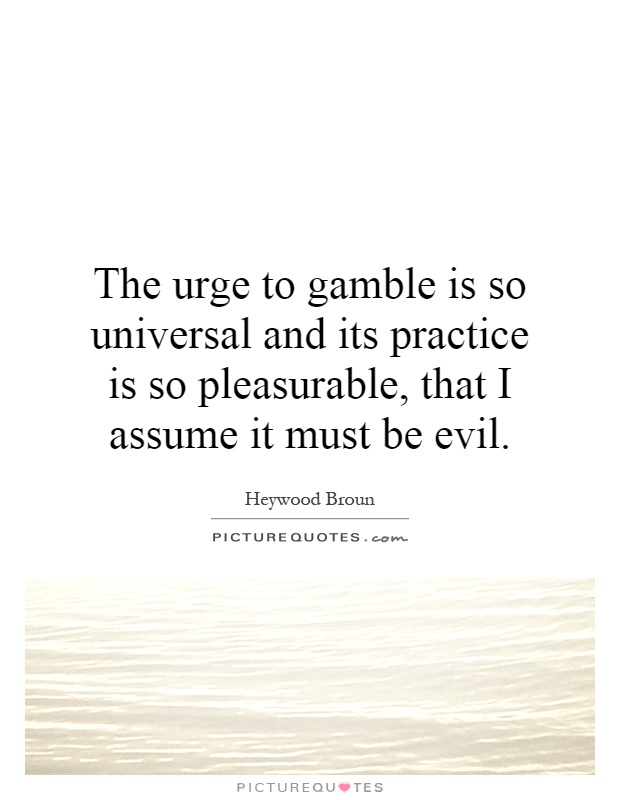The urge to gamble is so universal and its practice is so pleasurable, that I assume it must be evil

The urge to gamble is so universal and its practice is so pleasurable, that I assume it must be evil
Heywood Broun, a prominent American journalist and writer known for his wit and social commentary, once famously said, “The urge to gamble is so universal and its practice is so pleasurable, that I assume it must be evil.” This statement reflects Broun’s skepticism towards the act of gambling and its widespread appeal.Broun’s assertion that the urge to gamble is universal speaks to the inherent human desire for risk and excitement. Gambling has been a part of human culture for centuries, with people from all walks of life engaging in various forms of betting and wagering. The thrill of taking a chance and the possibility of winning big can be intoxicating, leading many individuals to indulge in gambling despite the potential risks involved.
However, Broun’s suggestion that gambling must be evil due to its universal appeal raises important questions about the morality of the practice. While some may view gambling as harmless entertainment, others see it as a destructive habit that can lead to financial ruin, addiction, and other negative consequences. The lure of easy money and the adrenaline rush of placing a bet can be seductive, making it difficult for individuals to resist the temptation to gamble.
Broun’s skepticism towards gambling may also stem from his belief in the corrupting influence of money and power. In a society driven by materialism and consumerism, the pursuit of wealth and success can often lead individuals down a dangerous path of greed and selfishness. Gambling, with its promise of quick riches and instant gratification, can exacerbate these tendencies and further erode moral values.
Overall, Broun’s statement on the universal urge to gamble and its potentially evil nature serves as a cautionary reminder of the dangers of indulging in risky behavior. While gambling may offer temporary excitement and pleasure, it is important to consider the long-term consequences and ethical implications of participating in such activities. By reflecting on Broun’s words, individuals can make more informed choices about their relationship with gambling and strive to maintain a sense of balance and responsibility in their lives.












 Friendship Quotes
Friendship Quotes Love Quotes
Love Quotes Life Quotes
Life Quotes Funny Quotes
Funny Quotes Motivational Quotes
Motivational Quotes Inspirational Quotes
Inspirational Quotes